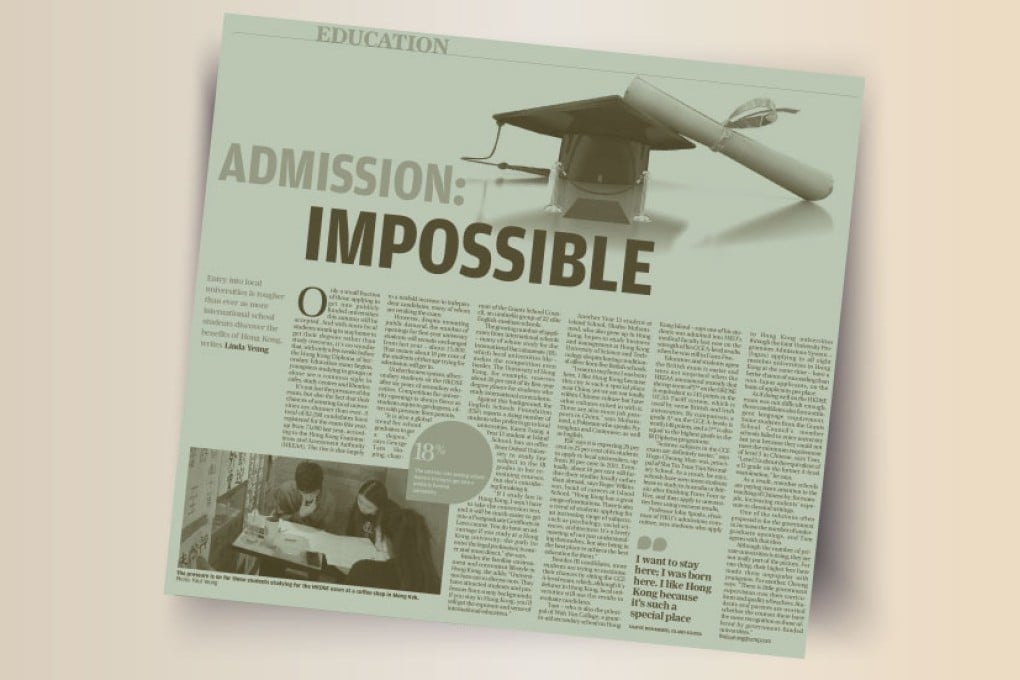Admission: Impossible
Entry into local universities is tougher than ever as more international school students discover the benefits of Hong Kong.

[First published on 04 March, 2013] Only a small fraction of those applying to get into publicly funded universities this autumn will be accepted. And with more local students wanting to stay home to get their degrees rather than study overseas, it’s no wonder that, with only a few weeks before the Hong Kong Diploma of Secondary Education exam begins, youngsters studying in groups or alone are a common sight in cafes, study centres and libraries.
It’s not just the pressure of the exam, but also the fact that their chances of entering local universities are slimmer than ever. A total of 82,198 candidates have registered for the exam this year, up from 71,000 last year, according to the Hong Kong Examinations and Assessment Authority (HKEAA). The rise is due largely to a tenfold increase in independent candidates, many of whom are retaking the exam.
However, despite mounting public demand, the number of openings for first-year university students will remain unchanged from last year – about 15,000. That means about 18 per cent of the students of that age trying for admission will get in.
Under the new system, all secondary students sit the HKDSE after six years of secondary education. Competition for university openings is always fierce as students aspire to get degrees, often with pressure from parents.
“It is also a global trend for school graduates to get a degree,” says George Tam Siuping, chairman of the Grants School Council, an umbrella group of 22 elite English-medium schools.
The growing number of applicants from international schools – many of whom study for the International Baccalaureate (IB), which local universities like – makes the competition even harder. The University of Hong Kong, for example, reserves about 20 per cent of its first-year degree places for students who study international curriculums.